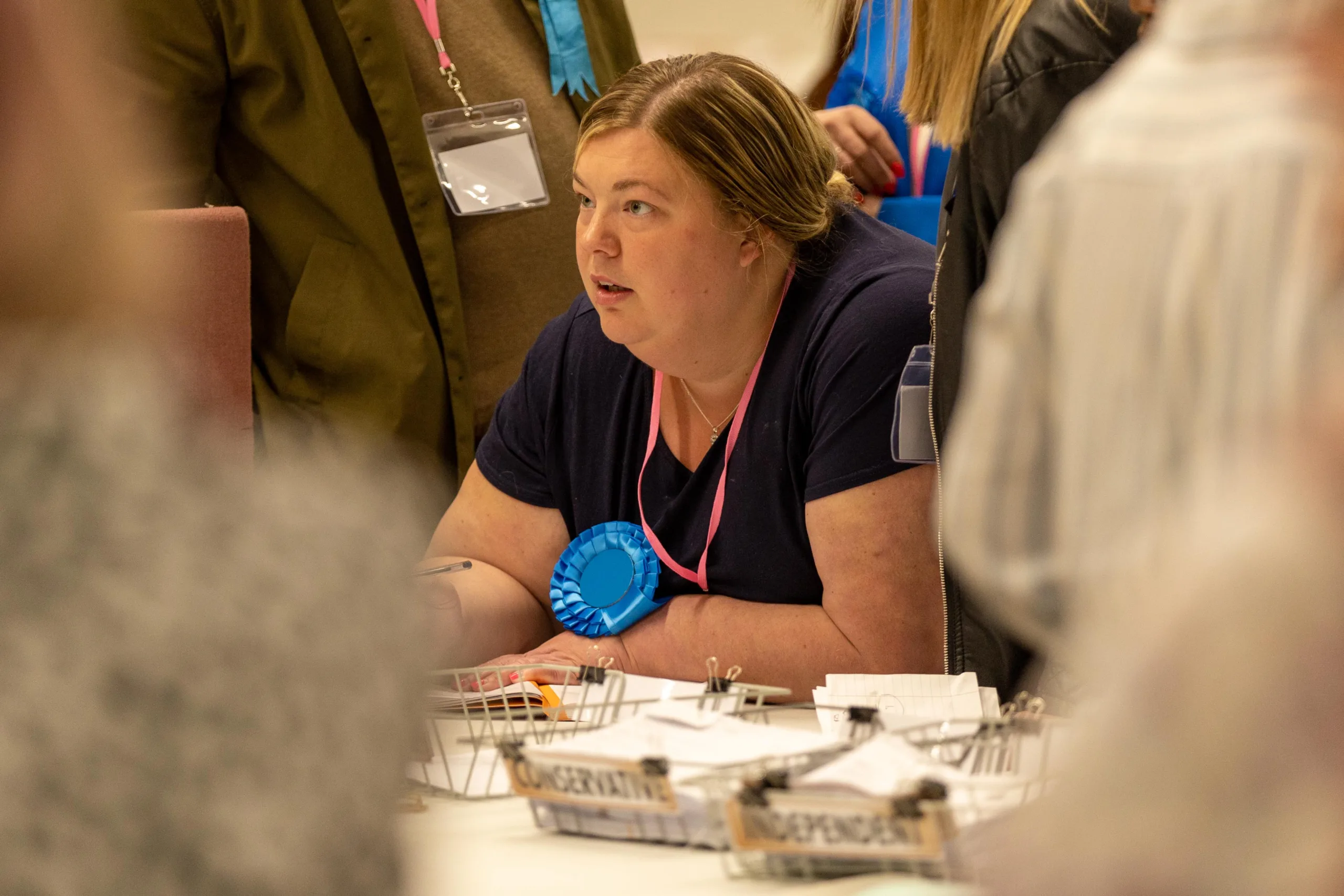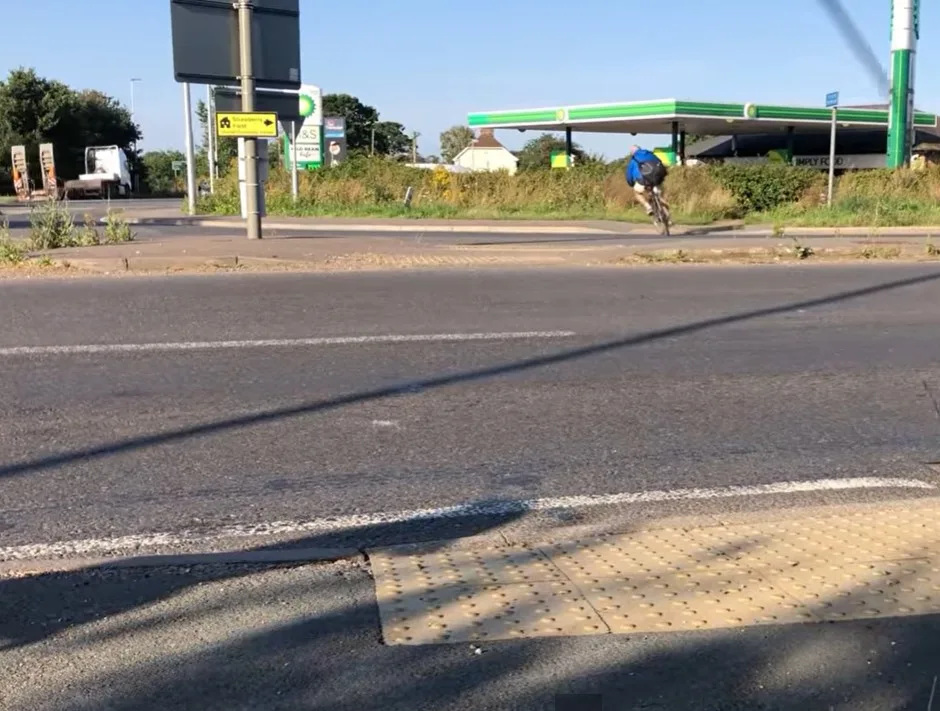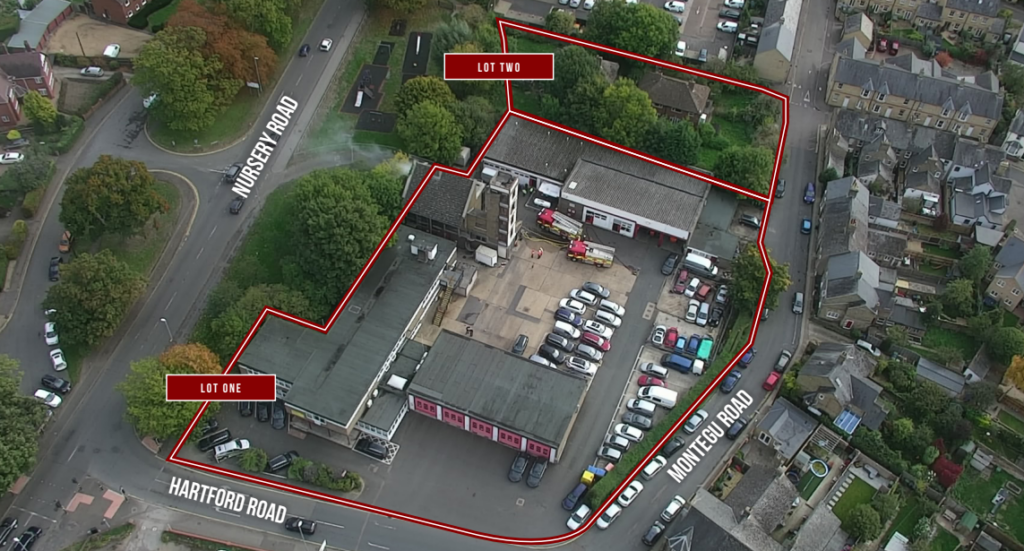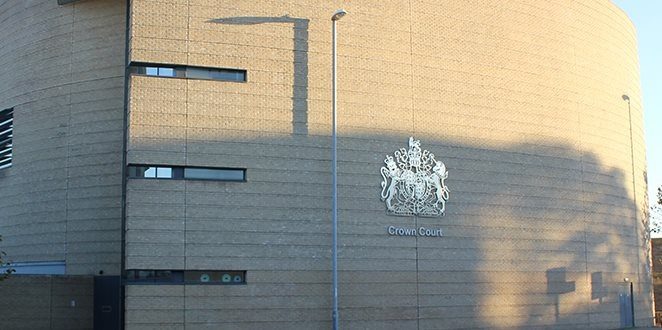Deteriorating relations between rock solid Conservative controlled Fenland District Council and Lib Dem/Labour/Independent controlled Cambridgeshire County Council sunk to a new level this week.
The county council was variously described as falling short on legal obligations, “failing in almost every respect in regard to highways” and placing impossible financial burdens on Fenland Council to achieve civil parking enforcement (CPE).
Hostility flared at Monday’s Cabinet meeting when it was revealed that the earliest date for the introduction of CPE in Fenland was now the autumn of 2025.
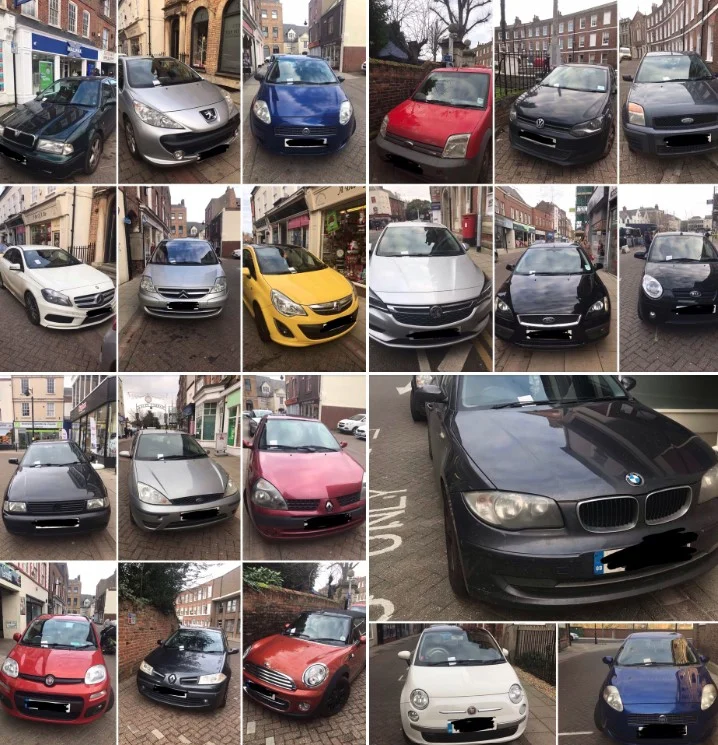
Introducing CPE is beset with rocketing costs and the need to rectify more than 90 per cent of the signs and markings on Fenland roads which a county council study has shown to be no longer legally compliant and therefore not legally enforceable if CPE goes ahead.
Cabinet was told of “major concerns in terms of FDC’s ability to deliver the CPE project within the available grant funded budget of £400,000.
“Based on the latest predicted sign and line delivery costs the likelihood is that there would be a substantial shortfall in the overall budget to deliver the whole CPE project”.
Cllr Jan French said it was “deeply disappointing” that four years after Fenland Council agreed to go ahead with CPE, the scheme had not progressed at the expected pace.
Council leader Chris Boden spoke of his disappointment at failures to agree draft agreements with the county council on aspects of CPE.
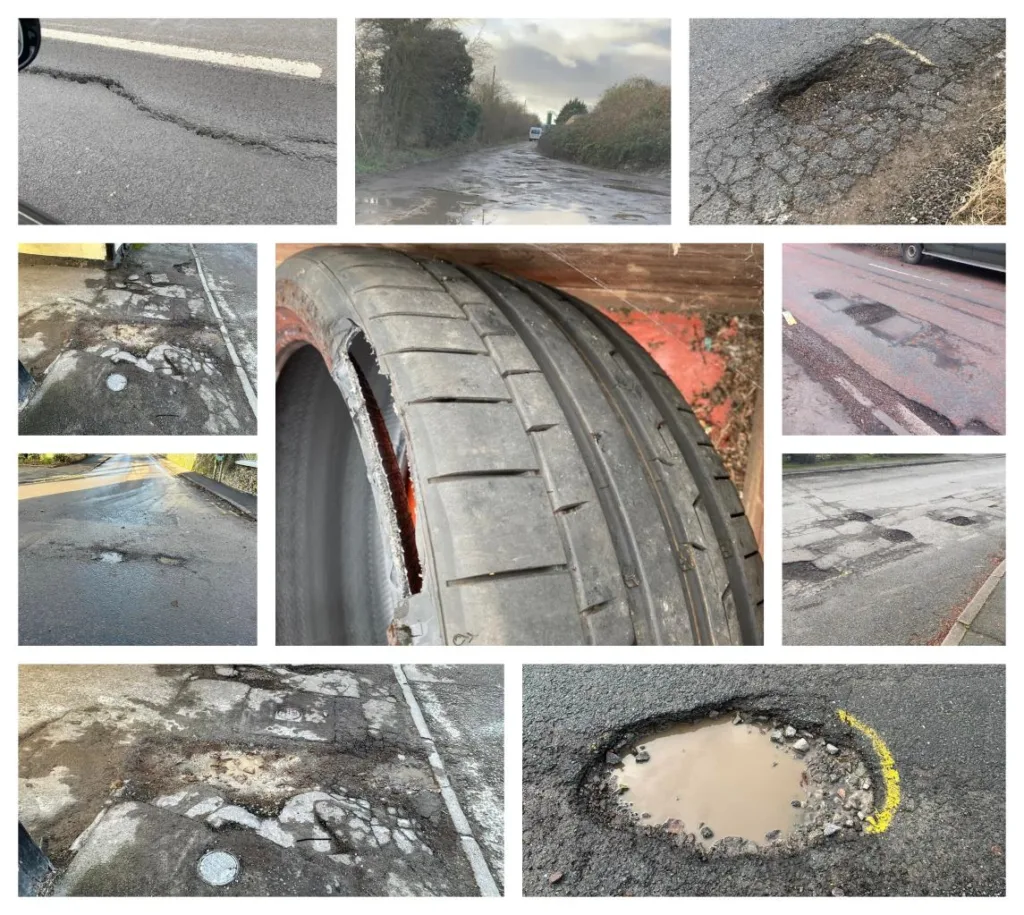
“And maybe most crucially and immediately we don’t have any reasonable agreements from the county council about meeting the shortfall in funding which is required just to bring the signage and the road markings up to the standard which is necessary to hand them over under civil parking enforcement,” he said.
He suggested Fenland Council return to the county council and say, “this is your responsibility; we’re already putting in £400,000 of our market towns money into this to be able to bring it up to up to speed.
“It is for you to find the money to bring this up to up to an acceptable standard and failure to do so is itself unacceptable.”
Cllr Dee Laws said: “Surely the county council has a duty of care and responsibility; I mean this is a legal requirement, so they’ve fallen short on that requirement.”
Cllr Boden said the council was taking legal advice as to the exact legal liability and he hoped to have that advice shortly.
Cllr Steve Tierney said: “It’s my opinion that the county council is failing in almost every respect in regard to highways.
“The roads are in a terrible state, the paths are in a terrible state, the signs are all wrong so we can’t do civil parking and it’s just a symptom of what appears to me to be an ongoing let’s just say deterioration of service on highways.
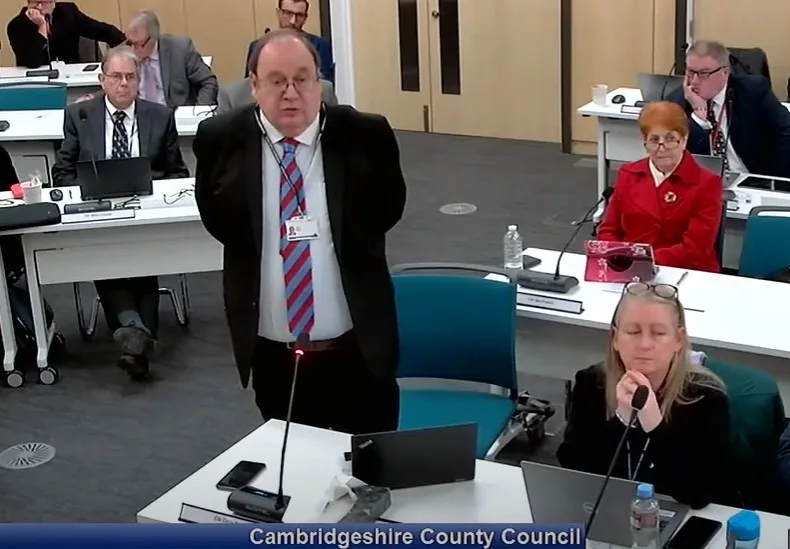
“Sitting on the county council as I do as an opposition member, I see the discussions going on and many times those of us on opposition benches point out that you really have to focus on the things that are your statutory responsibility rather than constantly virtue signalling about the weather.
“I know that’s just a personal opinion, but I just feel like that their priorities are wrong, and we need to start playing hard ball with them.
“So, I’m glad we’re taking legal advice because at the least they should be putting the signs right according to the law.”
Cllr Alex Miscandlon “I happen to be acquainted with one of the highways engineers that comes out and repairs your potholes.
“They are apparently employing a contractor that does a slip shod job of repairing the potholes and their get out is what we put a sign up.
“You travel down A605 the same as I do where a gentleman the other day did, and £800 worth of damage was caused to his car by one of those extended potholes that are functioning down there at the moment.
“And their (the county council) get out is that we stuck a sign up; it’s not good enough.
“They have a legal obligation to maintain the roads to a standard that is fit and usable by the public and I’m glad we’re taking legal advice on getting it done.”
Cllr Dee Laws said she was fed up with the deterioration in the services and especially across highways.
“I have never seen the towns and the villages look so appalling with the weeds in the gutters. Not only that but the weeds are growing through vital drains that we need for surface flooding.”
Cllr Sam Hoy said she didn’t expect financial support from the county council “because the truth is they just don’t want people to run cars.

Picture by Terry Harris.
“They’ve not been secret about that, they’ve not hidden that, they’re always talking about congestion charging and they’re talking about these 15-minute cities.
“They do not want people to own cars and in their minds and I’ve heard it in a couple of meetings recently their argument is Fenland has one of the highest levels of non-car ownership in the whole county so they’re saying because people can’t afford to drive in Fenland that means that we should have more public transport.
“I don’t disagree with that after all who wouldn’t want more public transport. I don’t think anyone would say no to that, but it also doesn’t recognize just how many people rely on their cars to get to work and it’s those people that are just about managing at the moment that they always seem to forget.
“I think we’re going to be here probably in six months and not get a penny from them because I don’t think they’re interested in our area.”
Cllr Boden said the county council’s actions were “all of part of this war on motorists which is being waged by those who see themselves as being the best arbiters as to what people can do, what they should do, and how they should do it and how they should live their lives.
“And it’s something that we need to resist as much as we can anyone.”
CPE is the transfer of parking enforcement from the police to local authorities and for Fenland to achieve it agreements have to be reached with the county council.
A draft application to the Department for Transport for a Civil/Special Enforcement Area Designation Order for the introduction of CPE in Fenland has been prepared by Cambridgeshire County Council in partnership with FDC.
Cabinet was told that there were several areas of the application that cannot be completed until decisions on the enforcement and administration providers have been reached.
One stumbling block, said a report to Cabinet, are the costs purely associated with the signing and lining works which are expected to rise around £507,000.
Huntingdonshire District Council, also going down the CPE road, have also seen their estimate costs rise from £280,000 to £950,000.
For the county council to discharge certain functions to FDC and to act as an agent to the county council for the delivery of on-street enforcement and notice processing, an agency agreement needs to be formed.
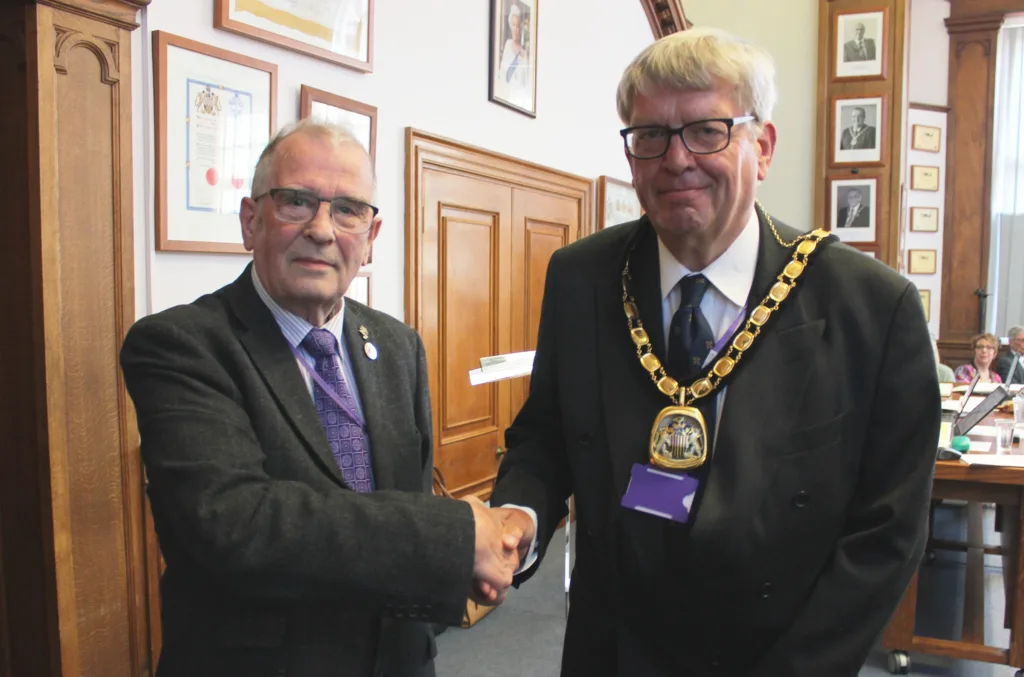
A service level agreement will form part of the agency agreement and define responsibility for things such as enforcement officer patrol requirements, PCN processing and appeals, sign and line maintenance, CPE surplus and deficit and CPE monitoring and reporting.
“Both documents have been initially drafted by officers, however it is now essential that focussed member time is set aside to provide a steer to officers on the acceptability of various clauses prior to seeking legal advice,” said the report.
“The detail within these agreements will impact on both the necessary resources needed to operate CPE and the annual revenue impact on FDC.
“It is the view of officers that there are a number of potential red flags within the agreement centred around FDC becoming responsible for various functions on the highway network.
“These would include the administration of all parking suspensions, waivers, dispensations on the highway and the potential impact that future changes in legislation such as pavement parking would have on the number of enforcement officers that FDC would need to provide.
“Further concern is associated with the absence of a specific county council budget for sign and line maintenance. Post CPE implementation this would have a huge impact on FDC enforcement officers potentially unable to carry out enforcement where defective signs and lines have been reported and not corrected within an agreed timeframe.”
In respect of car parks, Cabinet was told that a new district wide CPE Off-street parking places order has been drafted and FDC officers now require members input into the allocation of short and long stay facilities and maximum permitted parking periods for all FDC’s off-street car parks.
“Due to delays associated with design work funding and the timeframe required to produce the design work packages, FDC put forward an extension of time request to the CPCA (Cambridgeshire and Peterborough Combined Authority) for the CPE funding grant.
The report to Cabinet added: “The only alternative option is to continue as is now with the police carrying out any enforcement duties although this is not seen as a priority area of focus for the police.
“Additionally given the current non-compliant status of the vast majority of the districts’ signs and lines enforcement in any guise is considered challenging at present. “
It concluded that “unless further external funding is obtained there is likely to be a significant budget shortfall”.
On Tuesday Cllr Chris Seaton posed a question to the county council chair of highways and transport committee, Cllr Alex Beckett.

He asked what the county council would do to “rectify the appalling state of road-markings (such as single and double yellow lines) and on-street parking restriction signs in Fenland, where a recent report by the county council’s contractor indicated that more than 90% of the signs and markings are no longer legally compliant and therefore not legally enforceable”.
Cllr Beckett told him of the accumulated lack of investment by previous administrations into highways and the county council only had a “modest” revenue budget for highways.
And in the main, he said, the investment was into safety.
He also blamed the “Truss budget” in part for a 30 per cent inflation in highways costs.
Cllr Beckett said the need for improvements to signage was because the introduction of CPE required a higher barrier of enforcement than that currently required for regulation of parking by police.


